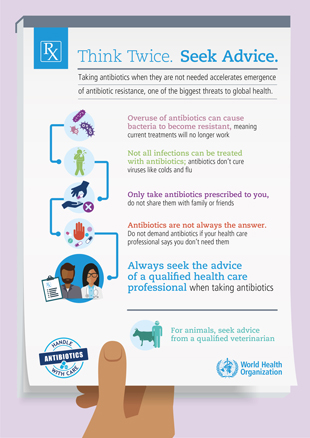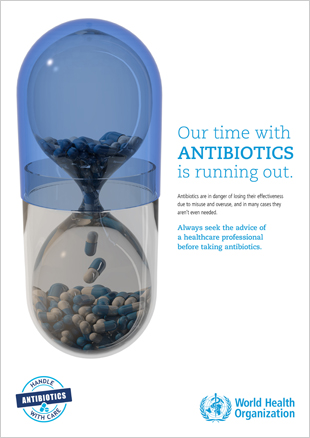It’s taken me a while to get back to the blog- those of you who follow my Instragram page will know I’ve been somewhat swamped but I’m keen to get back to it now.
What better week to start than Antibiotic Awareness Week 2017, eh?
Let’s start by going back to the beginning.
This man:
is fellow Physician and bacteria enthusiast, Sir Alexander Fleming. Somewhat of a prodigy, Fleming is credited with the ‘discovery’ of Penicillin- the first antibiotic. He was incredibly humble about and called it the ‘Fleming myth,’ instead praising the chemists that worked out how to make it a drug. I write ‘discovery’ because it was a natural accident. Known for his messiness, he left some plates of Staphylococcus piled in a corner of his desk and when he came back after the weekend, noticed a mould (Penicillium spp.) had grown on the plates and that it was inhibiting the Staphylococcus growth. I write ‘discovery’ because nature was already on it. But to be fair to Fleming, he continued working on Penicillin despite his own incredulity because he hoped some chemists would be able to harness its power as a drug. Hero.
The point is though, nature was already at work. Fleming was far far far from being a fool. He respected that nature had come up with Penicillin and therefore nature would naturally be fighting it.
“The time may come when Penicillin can be bought by anyone in the shops. Then there is the danger that the ignorant man may easily underdose himself and by exposing his microbes to non-lethal quantities of the drug make them resistant. Here is a hypothetical illustration. Mr X has a sore throat. He buys himself some penicillin and gives himself, not enough to kill the streptococci but enough to educate them to resist penicillin. He then infects his wife. Mrs X gets pneumonia and is treated with penicillin. As the streptococci are now resistant to penicillin the treatment fails. Mrs X dies. Who is primarily responsible for Mrs X’s death?”
Sir Alexander Fleming, Nobel Lecture, 1945
In 2015, Dr Santiago-Rodriguez and her team sequenced the gut microbiome of a Peruvian mummy and found that the microbiome carried resistance genes for many of the classes/families of antibiotics that we use today. Of course this is quite logical- antibiotics tend to be drugs formulated from natural substances, other microbes trying to use anything they can to outcompete each other. So when you think about it, we were always fighting a losing battle…
Except that we probably didn’t need to accelerate our own decline.
It is impossible to know how many BILLIONS of lives have been saved by antibiotics. I personally think that without antibiotics, the technological and medical advances of the last century would have been a far more distant dream. I mean, who knows how many genii have been saved in childhood, how many wizards of the modern world we might have lost without Pencillin. Yet we failed to heed Fleming’s warning.

I totally agree with the WHO’s advice that the public seeks medical advice before getting antibiotics. Fleming’s ‘hypothetical illustration’ has otherwise played out far too frequently, and in parts of the world where antibiotics aren’t so regulated, often still does (The fact that paying for a doctor AND antibiotics may be something families can’t afford is a matter they also need to address).
The problem is that sometimes, we medics are also part of the problem. Respect for antibiotics feels often minimal from my point of view. This is often due to a lack of knowledge; sometimes due to fear of losing a patient and using antibiotics unwisely as a result; sometimes due to fear of breaking the doctor-patient relationship. I remember growing up and seeing the public health campaign advising people NOT to ask their doctors for antibiotics for a viral illnesses. I also remember noticing that this was working amongst the general public.

I remember thinking that what I liked most about that campaign was that it encouraged patients to take responsibility for this issue in the UK too. It is now used frequently in communication skills lectures for medical students- explain why you won’t be giving this patient antibiotics and when to come back in case they do later need them.
Sadly, we are way passed Fleming’s warning. Way past. In January of this year, a 70 year-old woman from Nevada caught a hip infection after a stay in India. It was Klebsiella, a gram negative bacteria already flagged on the WHO’s list of worryingly resistant bacteria. It was resistant to all 26 available US antibiotics. You might say- oh, but she got it from India, right? Well global travel is increasing… If your next thought is stop global travel or close borders then we probably won’t get on, you’re being naïve and you’ve definitely missed the point.
WE ALL have led to this situation. We are ALL responsible for where we have got to. And if you’re not worried, then you should be. We ALL have a responsibility to halt any progression of antibiotic resistance that we possibly can and to spread the message to anyone who will listen.

Use antibiotics wisely and limit your infection risks as much as you can. We all have a part to play- your part may just be being aware of the problem to start with.


References
wikipedia- Fleming picture
WHO Antibiotic Awareness Week http://www.who.int
http://www.bbc.co.uk/news/health-38609553
Thank you for this necessary and relevant post. The topic of antibiotic resistance is huge! I just blogged about the cube sat experiment I watched launch on Sunday that will explore the minimum dosage of antibiotic required to treat coli infections. You can go to my pattern site at http://www.patreon.com/microgirl3 to read about it if you are interested. It’s free content. EcoSAT is a pretty cool piece of science that started running yesterday and will run with a parallel experiment on Earth.
Meanwhile I’ll be reposting your blog to Facebook because people need to hear this message and you have presented it in such a clear and engaging fashion. I’ll keep looking forward to your posts on Instagram and your blogs in my inbox. Have a great week.
“Chance favors the prepared mind” – Louis Pasteur
LikeLiked by 1 person
Thanks so much for your feedback, I really appreciate it and I’m glad you enjoyed it. I will have a look asap. Maybe at some point we could collaborate on something- I’d love to have you put a piece on here and advertise your patreon site 🙂
LikeLike
I would be honored to collaborate with you on a piece of writing. I think we would each be able to offer a unique perspective and create a strong piece. “In the history of evolution more has been accomplished by cooperation than by competition” ~ Lynn Margulis
Enjoy the rest of your Sunday and best wishes for a productive week.
LikeLiked by 1 person
That’s E.coli not coli and Patreon not pattern.
Stupid autocorrect
LikeLiked by 1 person